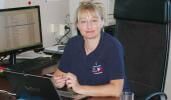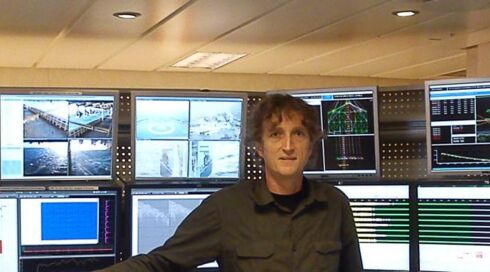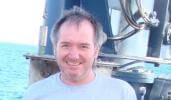3
Atlas Professional Nick Botham
Why this position, and why this industry?
“I started in the industry when I graduated with my degree in Geology and Geophysics from Liverpool in 2002. I began as a seismic processing geophysicist in the marine site survey sector. I really had no idea what to expect of working offshore when I began as a graduate, and it is the slightly unexpected nature of the work as a contractor that keeps it interesting! I started with Atlas in 2007. I enjoy the challenge of working with different companies and using different technologies on different projects, things like geohazard drilling surveys, exploration, time lapse seismic, or government jobs to submit requests to the UN for an extension of a country's continental shelf. Although I generally work for a small number of clients, there's always some aspect of the job that keeps it varied and interesting, whether it’s a multinational team, bareboat rigging, or the occasional palatial ship!”
How would you describe your job?
“I work in two different sectors: the 2D marine site survey (sometimes straying into shallow exploration) and recently I have done two long-term contracts with different clients using a very new method called Ocean Bottom Nodes (OBN). I have been lucky to work with the first two companies to offer this new technology on a large commercial scale, often having to prove its usefulness and robustness to cynical oil companies. I am part of a team (lately as shift leader) who QC the voluminous 3D datasets for use in exploration or production objectives. As this is most similar to land seismic, and as I have usually been the token marine geophysicist, it is something I would not have had the opportunity to do had I not been with Atlas. I got to learn some new theory and techniques, which was interesting, and had to attempt some basic programming, something I had not done since my undergraduate days!
However, it is in the 2D sector where I feel happiest. I am responsible for quality controlling and processing grids of high-resolution 2D seismic data into final interpretable product offshore, often alone, so there can be a lot of responsibility and time pressure. A whole host of survey techniques are employed onboard, and when I am not busy with my work, I get to assist in other parts of the survey. Whether it is carrying streamer sections during repair or reconfiguration, helping with geotechnical drop cores, or sifting clay for environmental surveys, it is nice to get away from my computer. Although 2 a.m., cold, wet, North Sea me might disagree with this on occasion, the teamwork and atmosphere onboard these projects is always good!”
And the Offshore Survey & Construction industry?
“My job has evolved due to changing technology, things such as improved or new acquisition equipment, new types of different or improved datasets, or simply improved computer power. I have already mentioned the OBN survey which didn't exist when I graduated. In site survey, although 2D techniques are relatively unchanged, a big change in the processing side offshore is the use of cheap parallel computing which allows me not only to work more quickly but to also use more intensive and more modern algorithms to give better results, often in the same time period. With even the smaller ships having satellite Internet now, we can also transfer small datasets ashore which can give the oil company results more quickly, or allow for help with the occasional tricky dataset.”
Thinking of progressing your career?
“I am always looking for ways to improve. Working with different companies gives me a lot of insights into different ways of doing things, which helps me on other jobs. As there aren't really any training courses available to me, particularly in the niche high-resolution seismic processing field, being able to gain work experience with different companies is very valuable.”
What have the highlights been so far?
"Seeing the start and successful end of a project is always satisfying. Tough jobs – whether due to inexperience on the part of survey company personnel, difficult weather conditions, or delays due to fishing activity or equipment problems – that are finished successfully as a good team are the best. And if it's somewhere hot and sunny, or interesting at least, where I get to have some downtime or local leave, then that's a definite bonus. Highlights in this respect have been walking on frozen sea in Baltic Latvia (from the beach, in case HSE are reading!) to taking time out to travel Western Australia, or climbing Kilimanjaro after finishing a tough government job in Kenya.”
.png)
.png)


